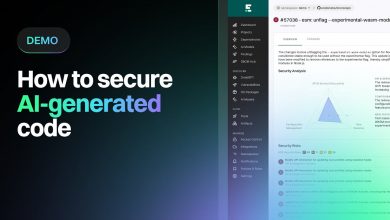Optimizing Cost, Performance and Security in K8s with Policy-as-Code
Kyverno seamlessly integrates with Kubernetes Vertical Pod Autoscaling (VPA) to automate resource right-sizing.
 Nirmata Kyverno, a Kubernetes-native policy engine, harnesses Policy-as-Code to optimize cost and performance for Kubernetes workloads.
Nirmata Kyverno, a Kubernetes-native policy engine, harnesses Policy-as-Code to optimize cost and performance for Kubernetes workloads.
By defining policies as Kubernetes resources in YAML, it enables platform teams to automate resource management, enforce best practices, and ensure efficient utilization without requiring complex tools or new languages.
This approach simplifies governance and drives significant savings and performance improvements across clusters.
Kyverno VPA
Kyverno seamlessly integrates with Kubernetes Vertical Pod Autoscaling (VPA) to automate resource right-sizing. It generates VPA resources for pod controllers like Deployments and StatefulSets, periodically adjusting container resource configurations based on VPA recommendations. This prevents overprovisioning, which wastes resources, and underprovisioning, which can degrade performance.
By allowing slight variations in resource settings, Kyverno ensures adjustments are meaningful, reducing cloud costs while maintaining workload stability. Similarly, Kyverno enforces autoscaling policies for Horizontal Pod Autoscaling (HPA) and VPA, enabling dynamic scaling based on demand. This ensures resources scale up during traffic spikes and down during lulls, optimizing costs and maintaining application performance without manual intervention.
Beyond resource allocation, Kyverno excels at identifying and managing inefficient resources. It can detect orphaned pods or those in crash loops, scaling down problematic deployments and alerting SRE teams for resolution. This cleanup reduces resource sprawl, lowering compute and storage costs while improving cluster stability.
Additionally, Kyverno integrates with cost monitoring tools like Kubecost and OpenCost to enforce cost governance. By monitoring namespace costs via APIs and triggering actions when thresholds are exceeded, it provides real-time visibility and control, helping organizations stay within budget while prioritizing resource efficiency.
Nirmata Control Hub
Kyverno’s time-to-live (TTL) policies further enhance cost savings by automatically removing unused or expired resources, such as temporary namespaces. This prevents resource accumulation, reducing overhead and improving control plane performance.
The flexibility of Kyverno’s policies, written as Kubernetes resources and managed with familiar tools like kubectl and git, allows organizations to tailor rules to specific workloads. With over 280 policy templates, teams can quickly implement best practices, ensuring resources align with workload needs and avoiding inefficiencies.
The Nirmata Control Hub (NCH) amplifies Kyverno’s capabilities by providing centralized governance, violation reporting, and DevSecOps collaboration. It categorizes issues, such as resource optimization violations, and routes them to teams for resolution, streamlining workflows. Kyverno itself is optimized for performance, with efficient JSON handling and event processing, ensuring low-latency policy enforcement that scales without introducing bottlenecks. Adopted by organizations like LinkedIn and Wayfair, with over 3.2 billion downloads, Kyverno proves its reliability in large-scale environments.
In summary, Nirmata Kyverno transforms Kubernetes management by automating resource right-sizing, enforcing autoscaling, cleaning up inefficiencies, and integrating with cost tools. Its Policy-as-Code approach, enhanced by NCH, delivers consistent, scalable optimization, reducing costs and boosting performance.



